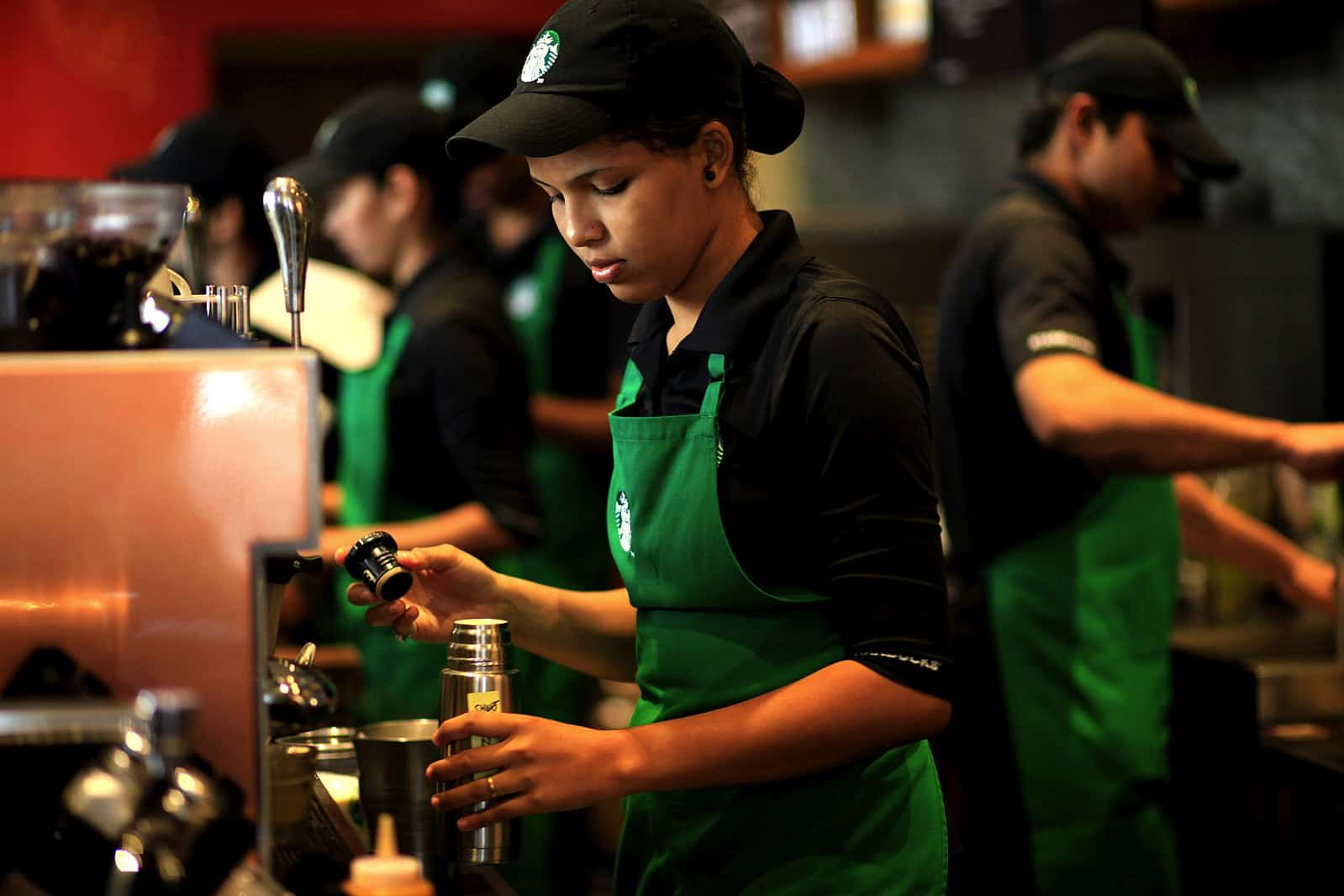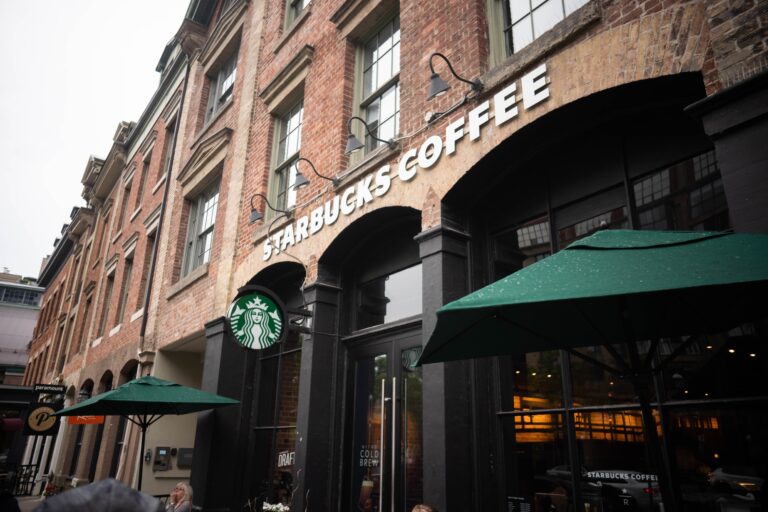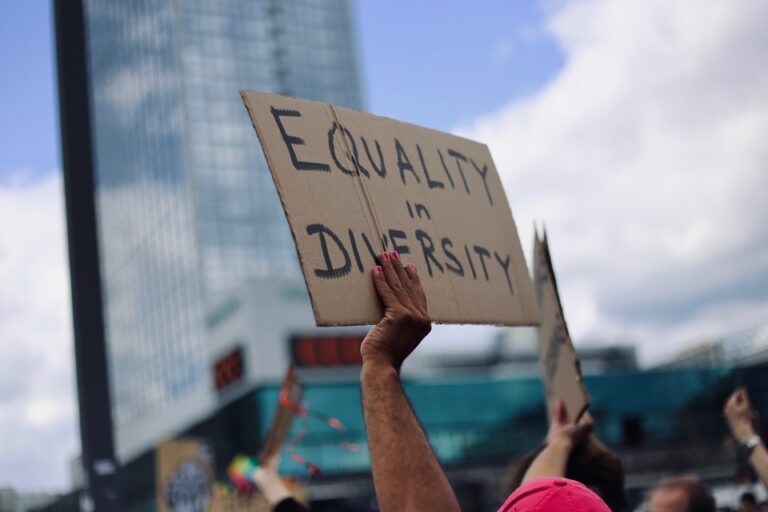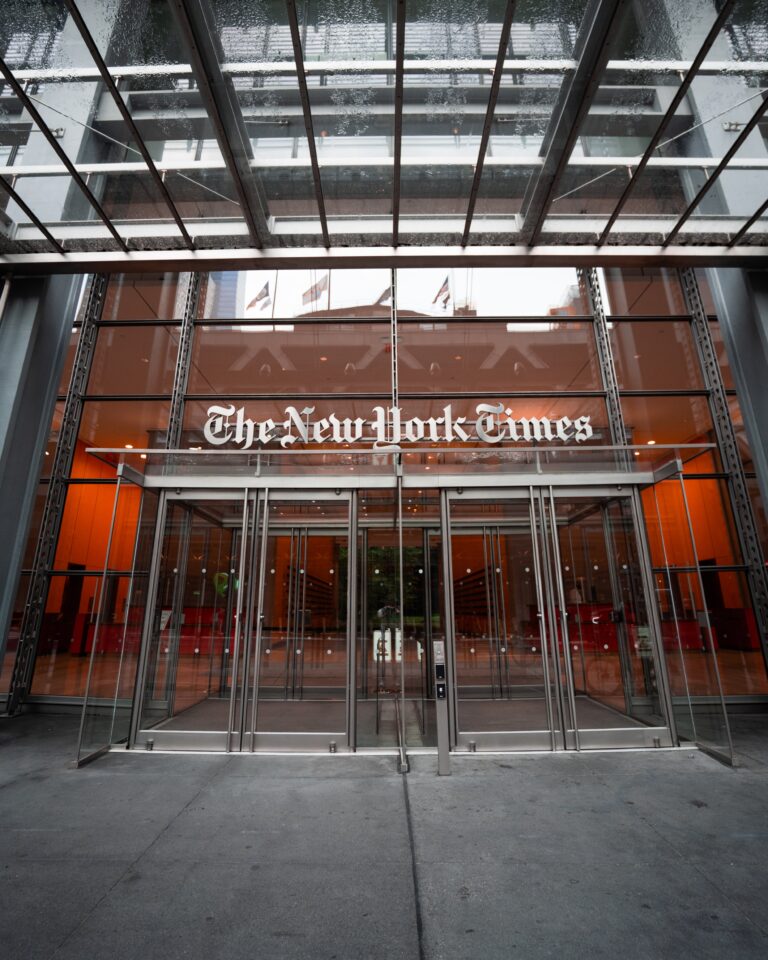
Steven Greenhouse, a former New York Times labor and workplace reporter, is author of Beaten Down, Worked Up: The Past, Present, and Future of American Labor.
The union victory at a single Starbucks in Buffalo might seem like small potatoes — the vote was 19 to 8 — but in many ways it is a very big deal. It’s the only one of Starbuck’s 8,900 company-owned cafés in the U.S to unionize. Also, it’s a very rare day that workers win a unionization drive at an iconic American company, whether Starbucks, Amazon, Walmart or McDonald’s. And it’s highly unusual for a union to win an organizing drive when a company mounts a fierce, all-out anti-union effort, as Starbucks did.
Starbucks dispatched many managers from across the U.S. – even the president of its North American retail operations – to Buffalo to work alongside the baristas. Many pro-union workers said it was a transparent effort to intimidate them and spy on them.
The Buffalo victory could prove to be small potatoes if unions and workers do little to follow up. But the Buffalo win could become a huge deal if unions and workers seize on the hopes and possibilities that that victory has created. If labor unions are serious about wanting to increase membership, they should immediately broadcast a message to workers at every Starbucks in the U.S., that it’s time to unionize, that unionizing to improve their pay and their lives is indeed possible — just look at what happened in Buffalo.
To capitalize on the good news from Buffalo, unions should dispatch organizers to try to get workers at hundreds of Starbucks across the U.S. to sign pro-union cards to request unionization elections. That way a true Starbucks workers movement can be built, and that can help put some much-needed movement back into the often plodding labor movement. It shouldn’t be hard to find many pro-union baristas in union-friendly cities like New York, Boston, Chicago, Detroit, Los Angeles, San Francisco and Seattle. Indeed, dozens of baristas at two Boston-area Starbucks — inspired by the Buffalo victory — have already signed cards to request a unionization election.
Still, it won’t be easy to turn the single Starbucks victory in Buffalo into a movement, but there’s zero chance of it becoming a larger movement unless one tries, unless one dares. Let’s not forget, the Fight for $15 seemed like small potatoes at first. On the day it went public, some 200 fast-food workers walked out at a dozen restaurants in New York, demanding $15 an hour. Many people dismissed it at first as a minuscule nothingburger, and said it wouldn’t go far. But the Fight for $15 tapped into a dream among low-wage workers across the land and helped by some inspired strategizing and by money from the Service Employees International Union, it snowballed into a national movement. Some days #FF15 strikes took place in over 150 cities, and ultimately nine states enacted laws calling for a $15 minimum, lifting pay for more than 20 million workers.
To be sure, it would take lots of organizers and resources to unionize 100 or 200 or 300 Starbucks at once, but if any union is up to it, it’s the service employees union. But if the S.E.I.U. doesn’t have the resources, it should — putting past differences aside – ask the hotel and restaurant workers union, Unite Here, and the A.F.L.-C.I.O. to join in the movement to organize Starbucks. If unions are serious about wanting to reverse organized labor’s decades-long decline, they need to seize opportunities like the one the Starbucks victory gives them.
And unions need to do this even though it’s often an uphill battle because America’s rules on organizing are so tilted against unions. U.S. law permits companies are to bar organizers from the workplace, while at the same time companies can blare their anti-union propaganda 24/7 in the workplace. And federal law pretty much gives a bright green light to employers to break the law when fighting against unions because the penalties for such violations are so minuscule. The PRO Act aims to fix that.
Unions all too often face an unfortunate obstacle once they organize a workplace: employers frequently drag out contract negotiations for one, two, even three years – to demoralize union supporters, to sour workers on their new union and to discourage other workers from voting to unionize. Starbucks may try to do this, and if it does, winning union drives at dozens of Starbucks across the U.S. not only would build morale and a movement, but would make workers feel better about the union and intensify pressure on Starbucks to stop stalling and reach a contract.
If Starbucks slow-walks contract talks, protests at 100 or 200 newly unionized Starbucks cafés are bound to put far more pressure on the company than a protest at a single unionized Starbucks in Buffalo. (There were votes at two other Starbucks in Buffalo last week; one voted 12 to 8 against unionizing, while at the other, workers voted 15 to 9 for unionizing, but the vote was inconclusive because there were so many challenged ballots that are still to be counted.)
Ever since the big news came last week that workers at a Buffalo Starbucks voted to unionize, many union supporters have voiced fears that Starbucks will simply – and cynically — close that café. Starbucks would no doubt assert that it closed that café for innocent, economic reasons, but the National Labor Relations might conclude otherwise and rule that Starbucks illegally closed the café to retaliate against workers for supporting a union.
Starbucks would be foolish to close the unionized café because it would undoubtedly face a major boycott in response, one backed by many unions, progressives, politicians and civil rights groups. Starbucks has many young, liberal-minded consumers who sympathize with low-wage workers, and they will no doubt sympathize with a boycott against a company that retaliates against low-wage workers who want improved conditions and a voice on the job.
As Starbucks workers move forward to build a better workplace, they can seize on not just the historic victory in Buffalo, but also an untapped weapon: widespread community support.










Daily News & Commentary
Start your day with our roundup of the latest labor developments. See all
July 13
APWU and USPS ratify a new contract, ICE barred from racial profiling in Los Angeles, and the fight continues over the dismantling of NIOSH
July 11
Regional director orders election without Board quorum; 9th Circuit pauses injunction on Executive Order; Driverless car legislation in Massachusetts
July 10
Wisconsin Supreme Court holds UW Health nurses are not covered by Wisconsin’s Labor Peace Act; a district judge denies the request to stay an injunction pending appeal; the NFLPA appeals an arbitration decision.
July 9
the Supreme Court allows Trump to proceed with mass firings; Secretary of Agriculture suggests Medicaid recipients replace deported migrant farmworkers; DHS ends TPS for Nicaragua and Honduras
July 8
In today’s news and commentary, Apple wins at the Fifth Circuit against the NLRB, Florida enacts a noncompete-friendly law, and complications with the No Tax on Tips in the Big Beautiful Bill. Apple won an appeal overturning a National Labor Relations Board (NLRB) decision that the company violated labor law by coercively questioning an employee […]
July 7
LA economy deals with fallout from ICE raids; a new appeal challenges the NCAA antitrust settlement; and the EPA places dissenting employees on leave.